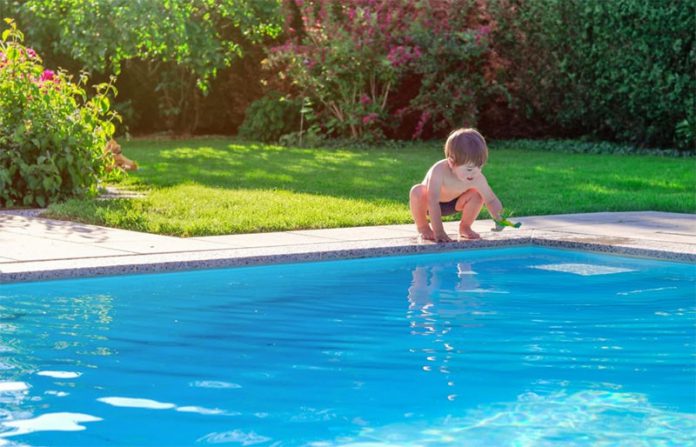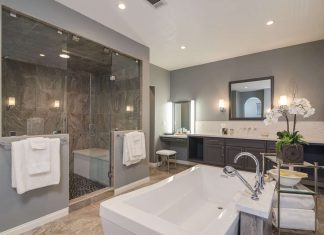Having a pool in your home is both beneficial and risky at the same time. On a hot summer day, you can take a dip to cool off. Swimming is also a fun way to exercise.
On the other hand, someone can drown in it, especially small children. To avoid this, you need to have a system in place that will notify you whenever someone enters the pool. There are gadgets designed for this purpose.
They come in a wide variety with various features to suit your needs. Here are some considerations to help you pick the right one. Also, checkout Top Tips For Home Swimming Pool Safety for more details on how to keep safe.
- Type of device
As mentioned before, the devices are of different kinds and features. Despite the fact that they work differently, their functionality is based on the same principle. They all sense certain variables such as motion and pressure then send signals to sound the alarm. The most common ones include:
- Surface sensor – they are placed on the water and detect when something falls onto the water by sensing the ripples produced. They can be configured so as to sound the alarm only when a certain amount of weight is detected. For example, it can be set to beep only when an object weighing 20 pounds and above touches the water surface. As such it eliminates unnecessary notifications, for instance, when a leaf falls.
- Subsurface sensors – they work by detecting the variation in the water pressure inside the pool and notifies you when something enters inside the water. Thus, an insect floating on top will not be detected.
- Gate sensors – this is installed on the gate that allows access to the pool and will notify you whenever the gate is opened. This gives you time to save the child before they enter the water and drown. The downside is that it might not work as expected if the gate was left open earlier on.
- Wristband – since it is worn on the wrist, it is a good way to keep an eye on specific people of interest. The downside is that it can only protect those close to you that you have given the wristband. It will not notify you of intruders.
If possible, you should install at least two of these gadgets to work alongside each other so that in the event that one malfunction the other can still do the job. The choice should also be reasonable. It would be unwise to buy a wristband and a surface sensor. A good option for example would be a combination of a gate sensor and subsurface. Click here to see the different pool alarm systems
- Government regulations
Some states have laws that regulate pool ownership and operations. They make it mandatory to have an alarm installed and might also specify the type and configurations required. Before settling for any gadget, you should first make sure that it conforms to all the requirements of the law. It would be a waste of time and money to buy and install an expensive device only to have it removed again. Therefore, strict adherence to these regulations should be upheld.
- Device sensitivity
It should be able to detect the changes quickly and produce an audible alarm. If it delays then by the time you become aware that somebody is drowning it might be too late to save them. It should also be possible to adjust the sensitivity range so that light objects such as leaves and insects can be ignored. If not then the gadget will go on whenever anything touches or enters the water. False alarms can be annoying especially at night when you are sleeping.
- Its durability
The total cost incurred for the purchase and installation of the equipment can be a lot. Therefore, it is only fair that the device serves you well and for a long time. You should opt for brands from reputable companies that manufacture high-quality goods that are known to last long. Before you settle for any cheap offers, you should think twice. Goods of this kind are usually designed to work for only a short period. See this link to read more about pool alarms.
- Compatibility
The device should be compatible with your setting. For instance, it makes no sense to buy a gate alarm if there is no fencing and a gate. A subsurface gadget can also be unsuitable for some pools above the ground that lacks the deck. You should take into account all the features before settling for any specific gadget.
- Cost
Purchase and installation of all the necessary equipment for the monitoring system can be very expensive. You might be tempted to settle for second-hand used materials to be able to lower the price down a little bit.
This comes at a risk since goods of this sort are prone to malfunctions. For materials such as cables you can use those that are readily available to you at your home but for the electronics you should consider buying new ones.
These should have a considerable warranty to take care of issues that might arise during the process. Have the installation and repairs done by qualified professionals only.
- Your style
This matters a lot because whatever you choose will be there to stay. You might find a wristband to be irritating but like a subsurface better. The choice depends entirely on you as a person. Whatever you decide upon, it will do you good to make sure that it is in line with the other considerations stated above.
Conclusion
Having a pool monitoring system installed allows you to own a pool without having to worry about the safety of your loved ones. This is only as effective as the system is. Thus, you should ensure that pick the right one that will operate as intended. In general, factors such as the legal requirements, type, functionality, and durability of the device should be at the top of your considerations. You can also have additional equipment such as cameras installed so that when the alarm sounds you can see what is going on without having to go outside. This is very important, especially when dealing with highly sensitive systems.












